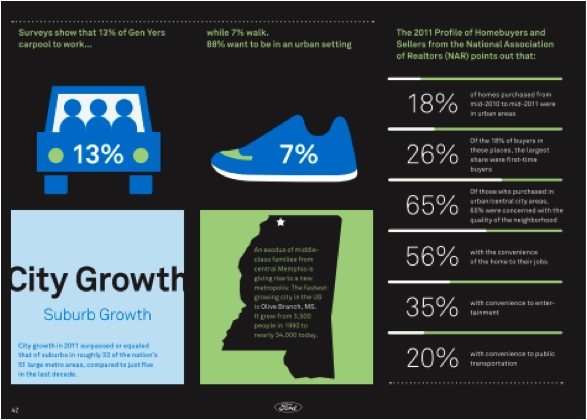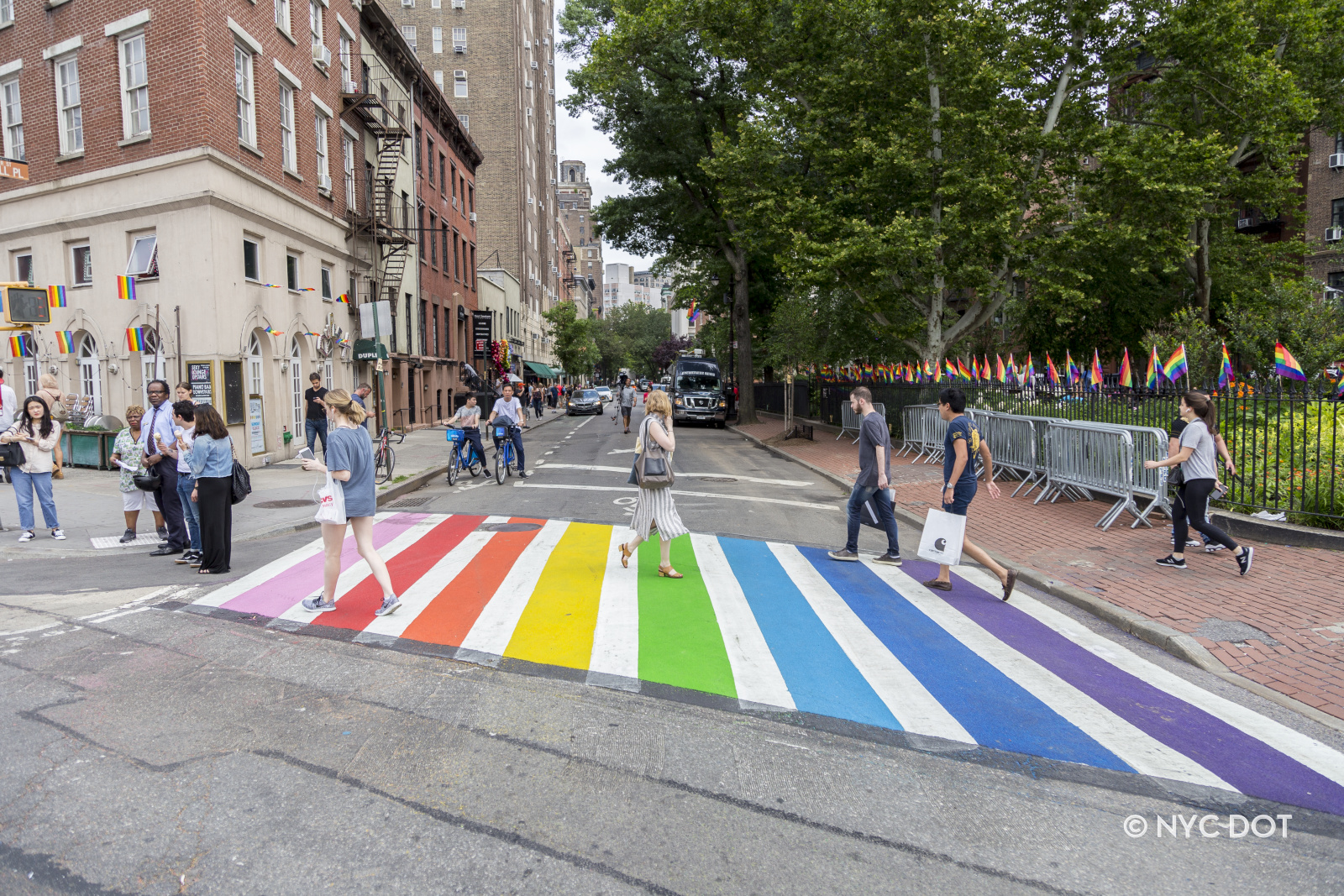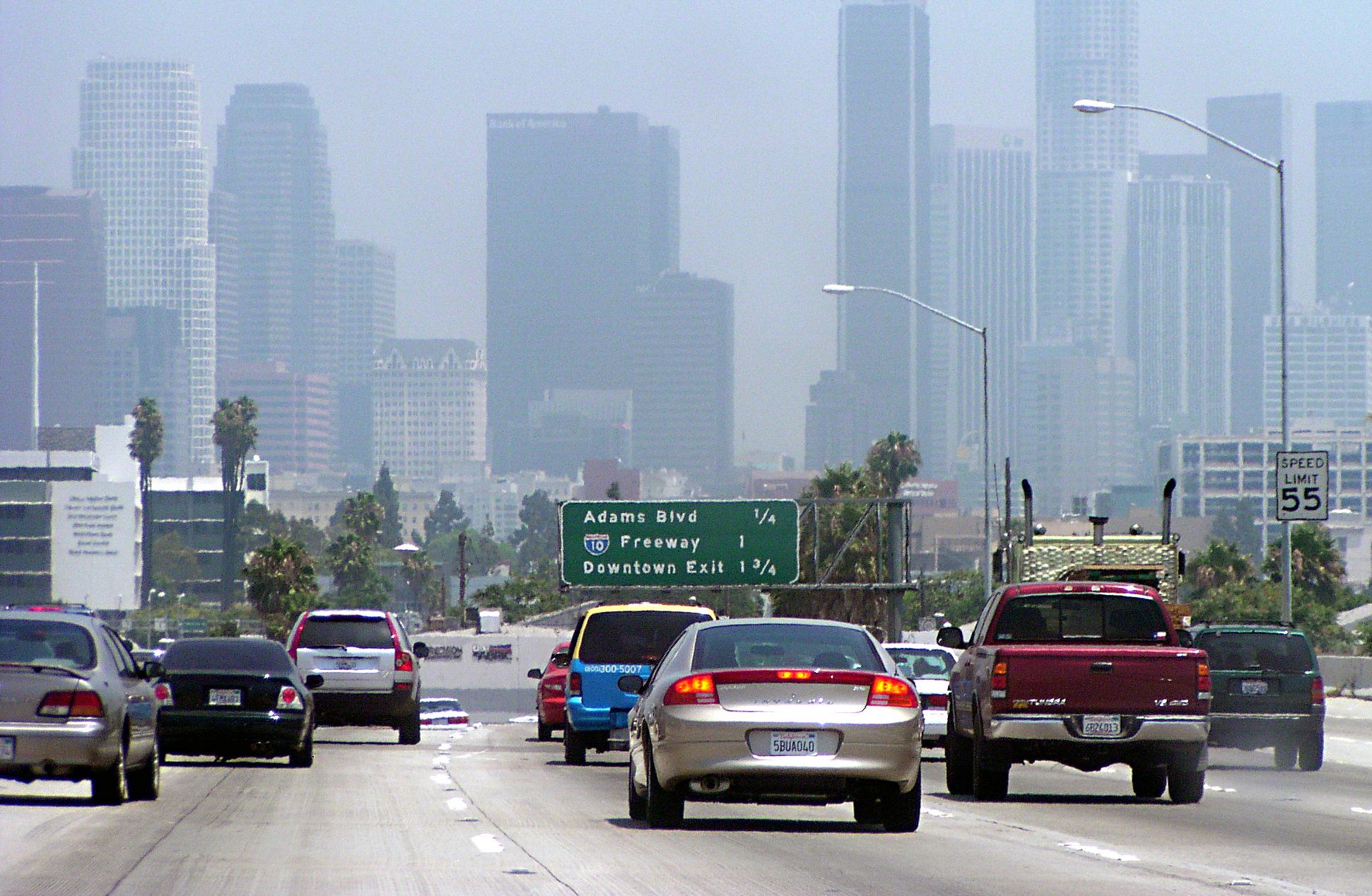
Ford has spent the last few years fretting about how to reach out to Gen Y. The car company made news earlier this year when it re-designed its 2015 Mustang to appeal to buyers born between 1980 and 1999. (Apparently Gen Y just screams "shark-nosed grille and round headlights" to Ford.)
Last year, Ford turned to marketing consultant Barbara Bylenga to explain this mysterious age cohort. She counseled them away from "flashy or snazzy" cars, saying Gen Yers "want to show their values, they want to show their success in different ways." After all, "a flashy sports car makes you seem like maybe you're trying a little too hard."
Now the company is going a step further, trying to appeal to this demographic by displaying their grasp of the fact that demand for their product is waning. In a glossy, 74-page document that AdWeek characterizes as "an internal consumer trends report for 2013" [PDF], Ford attempts to demonstrate that it is “not myopic, but is going beyond making cars into being an enabler in mobility opportunities,” according to Sheryl Connelly, Ford’s "global futurist" and author of the report. The document highlights Portland's Depave activists, bike-share systems in France and China (no mention of all the ones closer to home), and downtown revitalization efforts in Las Vegas and Carmel, Indiana, where “the mayor has set out to design a city for ‘people first and automobiles second.’”
So, what's Ford's place in this bright, green future?
It may help to review an episode from last year – not long after Bylenga made her pitch to Ford executives – when the company announced it was partnering with Zipcar to put Fords on 250 college campuses and subsidize the car-share fees for students. It was a move calculated to show that Ford is nimble enough to change with the times. “We are looking at the future of transportation more holistically,” Ford Executive Chairman William Clay Ford, Jr. told the New York Times. “We shouldn’t be threatened by these different business models. We should embrace them.”
Of course, as the Times wrote, Ford was betting that “drivers who rent from Zipcar by the hour just might be potential customers down the road.”
There's no indication in the consumer trends report that this giant of the auto industry is going to start making profits by providing "mobility opportunities" other than driving Fords, and AdWeek reports that the company "doesn’t intend to scale down the traditional auto business." Instead, "social business" maven Jeff Dachis told AdWeek, Ford's release of the document is a brilliant stroke of branding. "Aligning itself with progressive trends helps Ford in the marketplace.”





